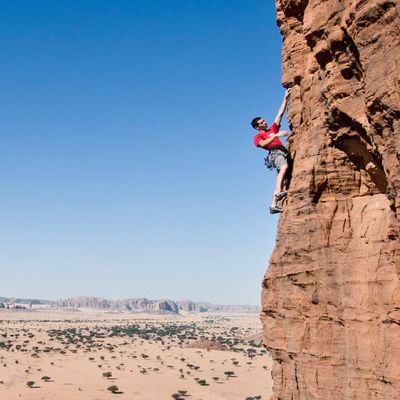
Here’s the latest entry in the list of things that make me go DEAR GOD WHY: Earlier this month, 31-year-old rock climber Alex Honnold became the first athlete ever to climb up El Capitan, one of Yosemite’s 3,000-foot vertical rock formations, using only his hands and feet, and no other climbing equipment. The feat, which Honnold described as “walking up glass,” took him just under four hours to accomplish. And while no one has ever died climbing El Capitan, several other climbers have perished by attempting to climb other mountains without the use of equipment, making Honnold’s feat all the more stupid. I mean, um, extraordinary.
Especially in recent years, an increasing number of athletes have competed in death-defying stunts involving parkour, BASE jumping, and cave diving, always acutely aware of their dangers but excited about the challenge. Extreme sports like these baffle me, and I’m apparently not alone in this. In a new study, published in Psychology of Consciousness, researchers from Australia and the UK set out to find what motivates these athletes, and their findings defy the stereotype of the thrill-seeker with a death wish.
“Our research has shown people who engage in extreme sports are anything but irresponsible risk-takers with a death wish,” study co-author Robert Schweitzer, a psychology professor at the University of Queensland in Australia, said in a statement. “They are highly-trained individuals with a deep knowledge of themselves … who do it to have an experience that is life-enhancing and life-changing.” For some, it’s even akin to a spiritual experience: Time slows down, they seem to become one with their surroundings.
Schweitzer likened the sensation to one that may be a little easier for the rest of us to understand: “The experience is very hard to describe in the same way that love is hard to describe,” he said. “It makes the participant feel very alive where all senses seem to be working better than in everyday life.” For example, “extreme climbers feel like they are floating and dancing with the rock,” while “BASE jumpers talk about seeing all the nooks and crannies of the rock as they zoom past.” You just can’t get that kind of feeling on the golf course.

